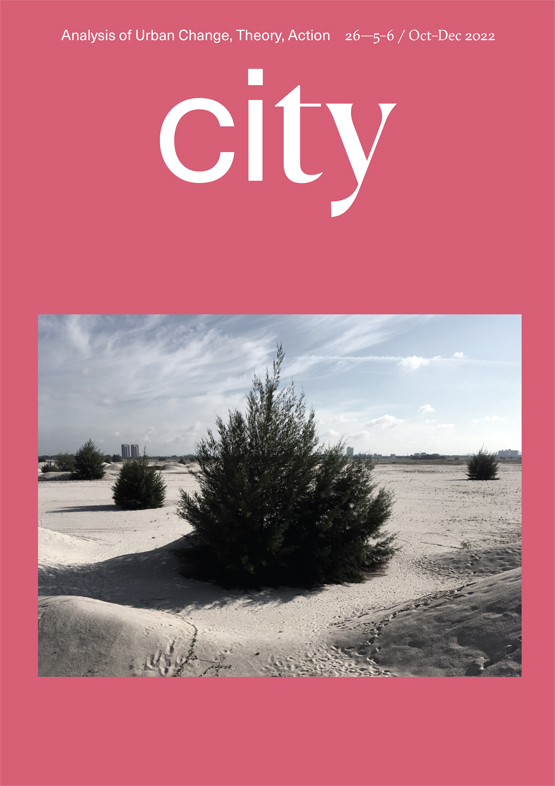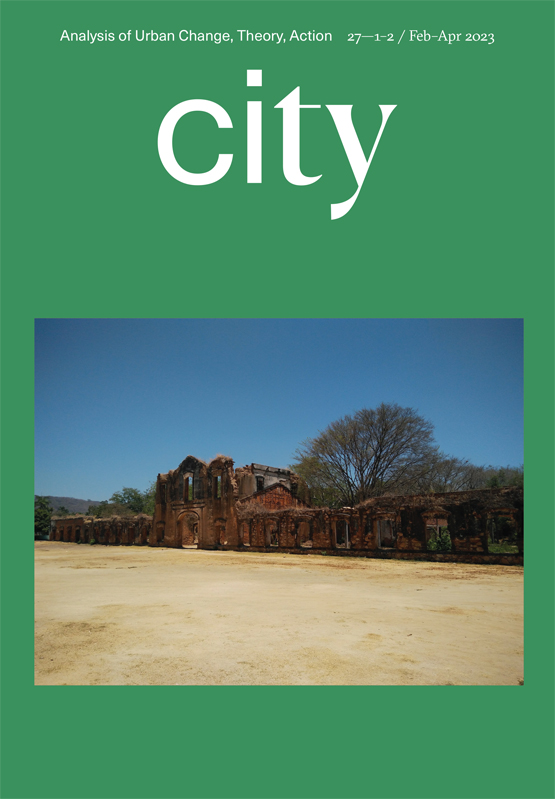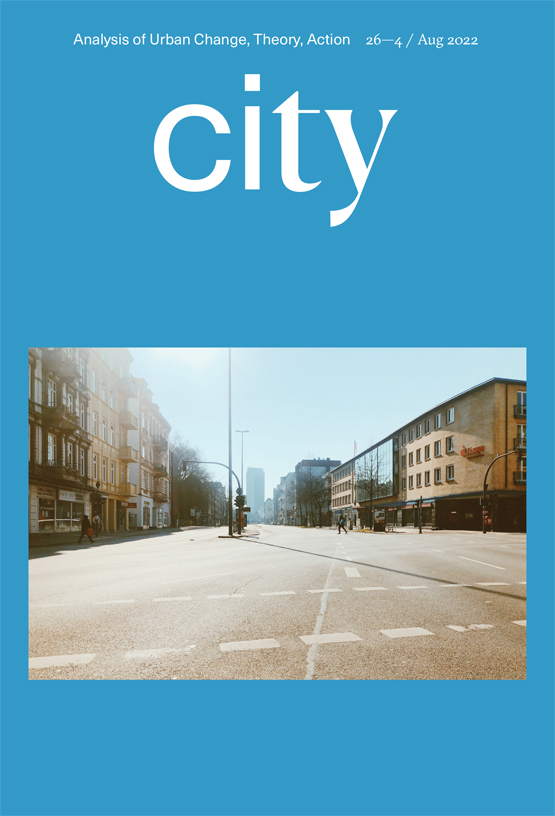founding editor: bob caterrall
editor: city editors
editorial: don’t write to ‘us’ -lindsay sawyer
The past few months have provided me the opportunity to meet three groups of colleagues and collaborators for the first time in two years. Putting aside the absurdity of getting back to business-as-usual as the permapandemic and periapocalypse moments roll on, it was a joy to meet these brilliant people in person and enjoy an immediate depth of engagement often so hard to produce in ersatz online spaces. One meeting made a particularly deep impression. I organised a writing workshop1 with Prof Taibat Lawanson from the Centre for Housing and Sustainable Development at the University of Lagos. Held in Lagos in July, a group of 12 early career scholars from Nigeria finally got to meet after 2 years of mentorship, article development and training sessions. It was a tangible attempt to address uneven knowledge production through making the vital scholarship being undertaken by Nigerian urban researchers part of the discourse occurring in international journals. It was a space of mutual learning and reckoning, where the fault lines and very real effects of this unevenness became apparent. As one especially positive outcome, it also consolidated the cohort into The Critical Urban Researchers of Nigeria, a network of peer support, resource sharing and solidarity.
In one session, the group pointed out that while they are advised not to use colloquialisms in their writing, as it will be seen to detract from their work by making it seem parochial and less relevant to international audiences, north/western scholars often pepper their text with wahala or go slow or a line from a Fela Kuti song in order to add authenticity to their work. There were cringes all round as people shared anecdotes of parachute researchers who misuse, or worse appropriate, language and culture. The most recent being the furore over the use of Sọ̀rọ̀ sókè by white author Trish Lorenz.2 While allegations of plagiarism or appropriation in the book proved to be unfounded, the title still grates on Nigerian ears and the awarding of generous funds for writing the book is galling. This raises an important question: when north/western scholars deploy these phrases when writing about places like Lagos, who is their imagined audience? Not a group of Nigerian urbanists such as this, clearly. When Nigerian scholars submit work to journals, who are they required to write to?
linda Tuhiwai Smith questioned the politics of academic writing and of writing to different audiences, evoking Edward Said to ask who we are writing to, and who is we (Smith 2012, 38). She highlights the double function of indigenous academic writing, that it must ‘write back’ to the academy as well as write to themselves. Alongside this, there is the inescapable need to write directly to the academy in order to get past its gatekeepers (us/you editors and reviewers) and out into the world, and of course to write this in English. For the Nigerian urbanists in the room that day, there is also the local institutional audience that has to be satisfied to achieve promotion, which have their own disciplinary formulations (see below and Ahmed et al. 2022). For a north/western scholar who is not trying to radically disrupt the canon, there is perhaps often just one imagined audience.
What is being claimed in the use of local pepper to spice up a paper? It’s like displaying a souvenir, a demonstration of having been somewhere. This could be used to infer authority, to impress, to look cool, but this largely only works for people who haven’t been there. It is an act of seeking legitimation from ‘here’ and not ‘there’. To my chagrin, I am frequently seen as brave for going to Lagos when I navigate the city as an international elite, with risks different to but as manageable as a visit to New York (the same distance incidentally from Sheffield as Lagos). The notion that it requires bravery to go to Lagos only denotes fear of that place, which of course comes primarily from a lack of familiarity and basic racism. The point is that the deployment of a local detail to impress relies on and assumes a lack of knowledge in your audience. More meaningful, and more stringent, are the tests of competence, those subtle tests of tacit knowledge that researchers are regularly subjected to by local people in the ‘field’. How often do we, or can we, write to those examiners?





